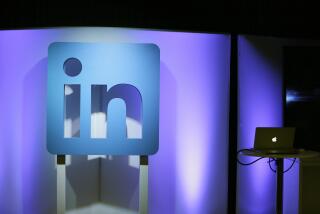Despite backlash, we’ll probably see more gender-themed ads like Audi’s Super Bowl spot
One of the most-discussed ads during the Super Bowl was not about football, beer or food. It was an Audi ad about the gender pay gap, featuring a dad watching his little girl competing in a cart race and questioning whether she’d be compensated equally when she grows up. “What do I tell my daughter?” the narrator asks.
The spot was praised and pilloried. “Lean In” author Sheryl Sandberg, posting about it on Facebook, said “now more than ever, we need ads like this which push back on gender stereotypes,” while high-profileTwitter users and consumers hailed the ad for its message.
But it also received heaping criticism, with more dislikes than likes on YouTube and, as of late last week, more negative than positive comments, according to a research firm cited by the Wall Street Journal, many of them questioning the basis of a gender pay gap. “This whole commercial is based off a lie,” one wrote on YouTube. “Women don’t make less than men. Total propaganda.”
(The gender wage gap is a complex topic, which can be primarily explained by differences in industry and occupation choice, hours worked and gaps for taking time off to have children. But researchers have also repeatedly found that part of the gap that remains is “unexplained” or unaccounted for by any of these factors.)
The brouhaha over Audi’s “Daughter” spot provided a data point to those wondering how the “femvertising” trend of recent years — the move by brands such as Dove, Always and Pantene to embrace gender empowerment themes in their ads — might fare in the aftermath of such a divisive presidential campaign and amid heightened politicization of seemingly any corporate speech.
Brands, after all, now find themselves navigating two different movements: Consumers are threatening boycotts and backlash any time a brand wades into seemingly political turf, while voices from the right appear emboldened after the election, criticizing topics that invited much less public controversy in the past. Yet at the same time, the worldwide Women’s March elevated women’s issues in the national conversation.
“There seems to be sort of an awakening, not just from the election, that we didn’t make as much progress as we thought we did,” former Wall Street executive Sallie Krawcheck told the Washington Post in January. “There’s a different energy among professional women right now.”
Samantha Skey, president and chief revenue officer of SheKnows Media, a digital media company that runs an awards program for such women-focused campaigns, thinks such ads will continue for brands where it makes sense. “It’s just going to invite more discussion because it’s going to seem political,” she says. “There is no middle right now.”
Susie Nam, chief operating officer at Droga5, the agency behind Under Armour’s “I Will What I Want” women’s campaign, agrees the trend will continue.
While ads explicitly focused on gender issues will continue, they could also become more subtle, where a female CEO is featured, say, but equality is not the core theme. “ ‘Normvertising’ is probably what’s going to come next,” Skey said.
Both Nam and Skey note that structural changes in advertising agencies could also be a catalyst. Skey points to General Mills, which began pressuring the agencies it works with to have more gender-balanced teams last year.
A spokeswoman for Audi of America could not confirm whether the carmaker has a policy like General Mills’ in place, but pointed to other gender initiatives at the company. The company signed the Obama White House’s Equal Pay Pledge and has instituted a graduate internship program where 50% of enrollment must be female.
Still, Audi’s executive team is largely male, with just two women on its senior leadership team in the United States and no women on its global management board.
Though that may read to some as hypocritical, Skey thinks Audi’s message will still likely resonate with its upscale target customer.
“If you see a middle-of-the-road brand approaching this strategy, it is more risky,” she says. “I don’t doubt that Audi did this with eyes wide open about who it was going to alienate and who it was going to ingratiate.”
Jena McGregor writes a column analyzing leadership in the news for the Washington Post’s On Leadership section.






